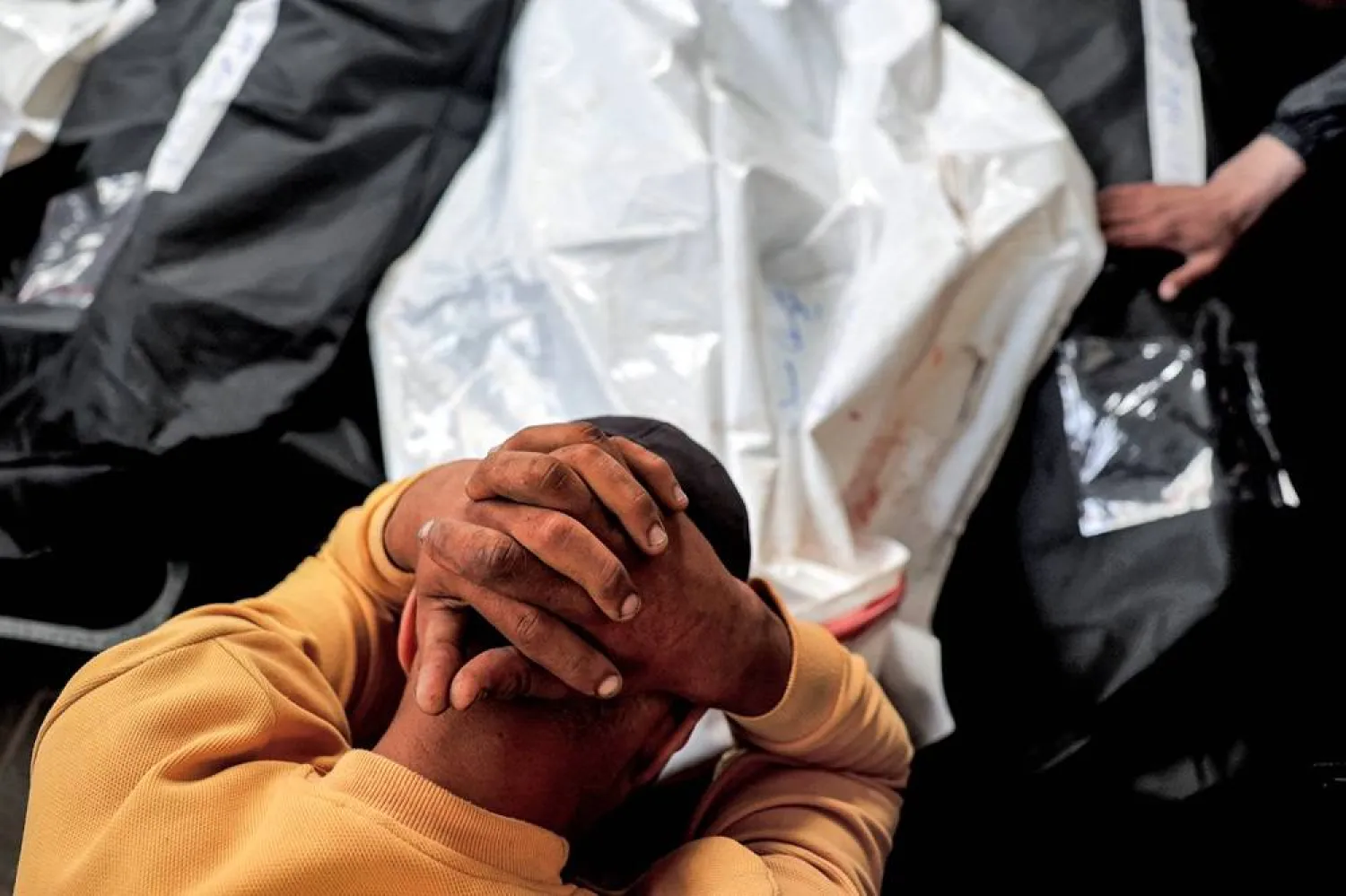Israeli tanks pushed back into parts of the northern Gaza Strip on Tuesday which they had left weeks ago, while warplanes conducted air strikes on Rafah, the Palestinians' last refuge in the south of the territory, killing and wounding several people, medics and residents said.
Residents reported an internet outage in the areas of Beit Hanoun and Jabalia in northern Gaza. Tanks advanced into Beit Hanoun and surrounded some schools where displaced families have taken refuge, said the residents and media outlets of the armed Palestinian group Hamas.
"Occupation soldiers ordered all families inside the schools and the nearby houses where the tanks had advanced to evacuate. The soldiers detained many men," one resident of northern Gaza told Reuters via a chat app.
Beit Hanoun, home to 60,000 people, was one of the first areas targeted by Israel's ground offensive in Gaza last October. Heavy bombardment turned most of Beit Hanoun, once known as "the basket of fruit" because of its orchards, into a ghost town comprising piles of rubble.
Many families who had returned to Beit Hanoun and Jabalia in recent weeks after Israeli forces withdrew, began moving out again on Tuesday because of the new raid, some residents said.
Palestinian health officials said an Israeli strike had killed four people and wounded several others in Rafah, where over half of Gaza's 2.3 million people are sheltering and bracing for a planned Israeli ground offensive into the city, which borders Egypt.
Later on Tuesday, Palestinian health officials and Hamas media said an Israeli air strike had killed 11 Palestinians, including children, in the Al-Maghazi refugee camp in the central Gaza Strip. The Israeli military did not immediately respond to a Reuters request for comment.
"My brothers were sitting by the door, my brother was injured, and his cousin too, and I lost my son, I do not have a house, nor a husband, nor anything anymore," said Wafaa Issa al-Nouri, whose son Mohammad and husband were killed in the strike.
"He was playing by the door, we didn't do anything, I swear we didn't do anything," she said.
Gunmen targeted
After six months of fighting, there is still no sign of any breakthrough in US-backed talks led by Qatar and Egypt to clinch a ceasefire deal in Gaza, as Israel and Hamas stick to their mutually irreconcilable conditions.
The Israeli military said its forces continued to operate in the central Gaza Strip and that they had killed several gunmen who attempted to attack them.
"Furthermore, over the past day, IDF fighter jets and aircraft destroyed a missile launcher along with dozens of terrorist infrastructure, terror tunnels, and military compounds where armed Hamas terrorists were located," it added.
In Al-Nusseirat refugee camp in the central Gaza Strip, residents said Israeli planes had bombed and destroyed four multi-storey residential buildings on Tuesday.
Israel is still imposing "unlawful" restrictions on humanitarian relief for Gaza, the UN human rights office said on Tuesday, despite assertions from Israel and others that barriers have eased.
The amount of aid now entering Gaza is disputed, with Israel and Washington saying aid flows have risen in recent days but UN agencies say it is still far below bare minimum levels.
Israel is under international pressure to allow more aid into Gaza, especially northern areas where famine is expected by May, according to the United Nations.
Israel's military said it had facilitated the entry of 126 trucks into northern Gaza late on Monday from the south.
It also said it was working in collaboration with the World Food Program (WFP) to facilitate the opening of two more bakeries in northern Gaza after the first began operations on Monday with WFP help.
The Palestinian health ministry said more than 33,000 Palestinians have so far been killed by Israeli fire since Oct. 7, including 46 in the past 24 hours.
Israel launched its offensive in Gaza after fighters of the Hamas group that has been running the territory attacked Israel on Oct. 7, killing 1,200 people and taking 253 hostages according to Israeli tallies.









